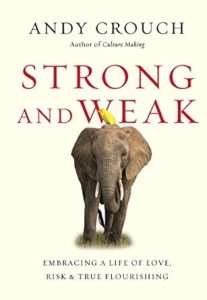 Takeaway: While we are not saved by our beliefs, knowing why we believe what we believe is essential to right belief.
Takeaway: While we are not saved by our beliefs, knowing why we believe what we believe is essential to right belief.
One of the things that I have become more sure of as I have aged (and read more books) is that salvation is not simply about right belief. I Cor 13 seems to directly address the common, but unfortunate, problem that many modern Evangelicals (and other Christians have). I Cor 13 suggests that we may be right in the external features of our faith (knowledge, miracles, suffering for God) but still be missing the essential feature of Love.
So I think many, especially of the non-denominational and free church varieties of Christians, have rejected some types of knowledge in a partial attempt at being more about personal experience of faith than about the knowledge of faith. I think often this is a false dichotomy. We need the personal experience of Christ’s love for us (and our corresponding response of love for others) but we do not need to reject our knowledge (or history) to get it.
This past weekend I was talking to my Dad about theology (a common topic for us since he is a pastor and I like to read theology for fun.) One of the things that came up is that Evangelical theology is often narrow. The problem is not with the particulars of that theology, but with the narrowness. As a response some people want to reject one narrow theology and just adopt a new narrow theology.
But the better choice is to read and talk widely within the different streams of the Christian church precisely because we need those various streams to understand the fullness of the Christian faith.
As an example we need not reject the the penal substitution model of the atonement to understand that it is just one of the models of the atonement that is part of historic Christianity and biblically supported. Yes there are weaknesses to that particular model, but there are weaknesses to all of the atonement models. All are simply models that help us to more fully understand why Christ chose to come to earth, fully incarnated as a human, die and be raised again in a new (still incarnated) body. The model is not the atonement itself, but simply a model to help us understand the atonement.
None of that is a review of Justin Holcolm’s book Know the Creeds and Councils. But it is relevant because part of learning about the different streams of faith is important to understanding how they relate and where we agree. Virtually all streams of Christianity can affirm the earliest creeds, the Apostle’s Creed and the Nicene Creed. But understanding how those creeds and later creeds as well as later councils that helped form much of what we now believe, matter because it is the history, not only of our own stream, but of the other streams of Christian faith as well.
Read more
 Summary: A stay at home mom get shot in a robbery and starts being able to read minds.
Summary: A stay at home mom get shot in a robbery and starts being able to read minds.  Eugene Cho challenges us to truly pursue justice, and to be willing to make the personal sacrifices that the pursuit will ultimately force us to make. In an age of short-term mission trips and numerous opportunities to change the world, many people love the idea of justice and doing good until it begins to require some sacrifice, and it always will.
Eugene Cho challenges us to truly pursue justice, and to be willing to make the personal sacrifices that the pursuit will ultimately force us to make. In an age of short-term mission trips and numerous opportunities to change the world, many people love the idea of justice and doing good until it begins to require some sacrifice, and it always will.


 The basic concept of the book is simple. Crouch has a two by two grid (the image on the right is from the book). High authority and high vulnerability (or risk) leads to flourishing. High authority with low vulnerability leads to exploiting others. Low authority with low vulnerability leads to withdrawing from relationships (and the world). And the final of the four options is low authority and high vulnerability, which leads to suffering.
The basic concept of the book is simple. Crouch has a two by two grid (the image on the right is from the book). High authority and high vulnerability (or risk) leads to flourishing. High authority with low vulnerability leads to exploiting others. Low authority with low vulnerability leads to withdrawing from relationships (and the world). And the final of the four options is low authority and high vulnerability, which leads to suffering.
